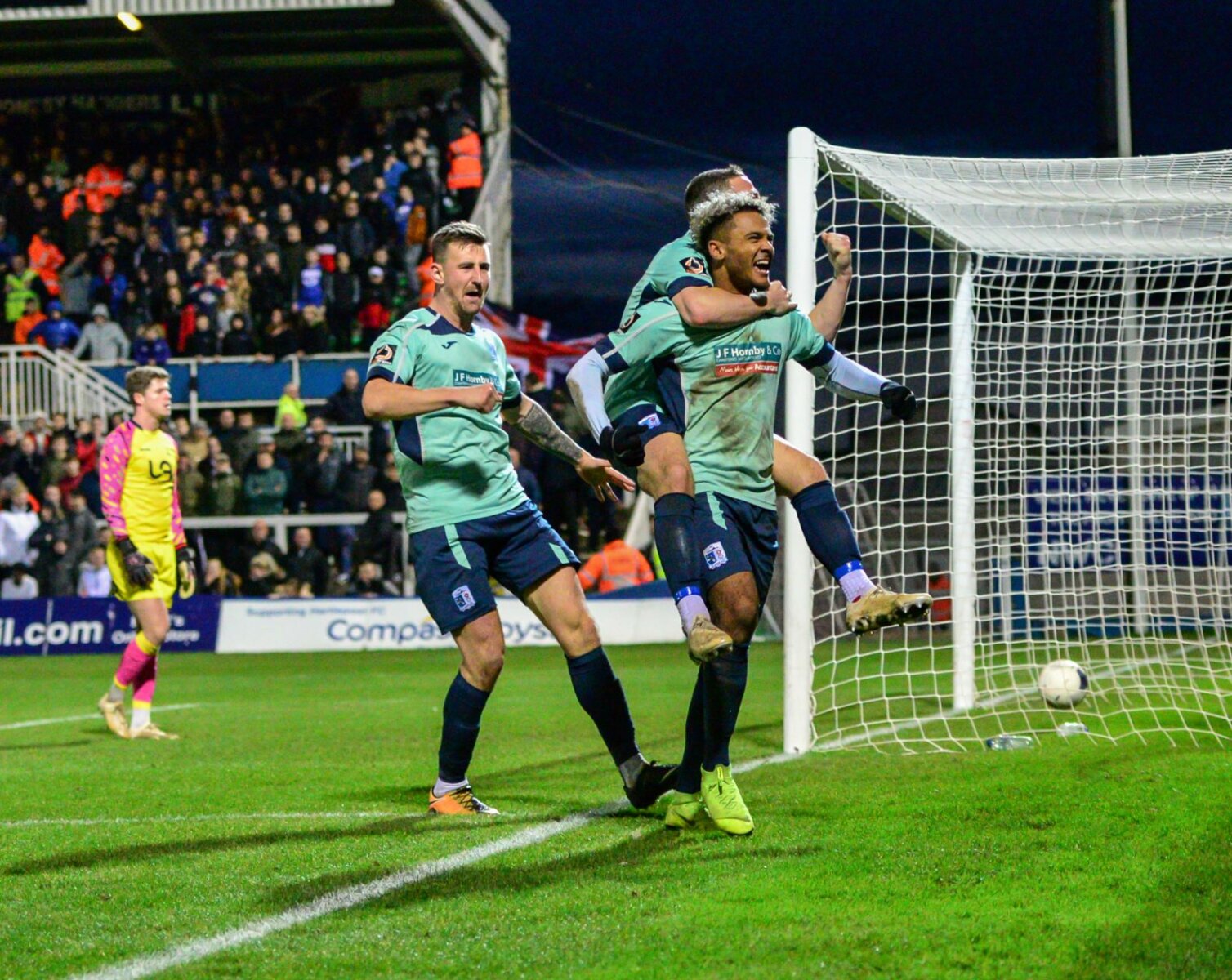
BT Sport pundit Adam Virgo gives his expert opinion
I was very surprised that National League clubs were asked to vote on ending the season so soon.
Yes, time is running out for everyone. Thanks to the contract situation, you basically need to finish the season by July 1.
I also recognise the fact that clubs rely almost entirely on fans coming into the stadium for their revenue. With the odd exception, it’s fans who pay the players’ wages. The staff’s wages.
Nobody at this level can afford to play behind closed doors, so if there’s no prospect of fans being allowed in, it makes sense to cancel games.
What I don’t get is the timing. There were still two months to get things done, and the majority only had eight games left, not 14 or 15. You could fit those into three weeks, tinker with the play-off format and get that done in seven days. It would be tough on players, but very doable.
And if the Football League does decide to carry on – which looks increasingly likely – what happens then? The National League, presumably, will want to promote somebody and that will mean waiting for the EFL to finish, however long that may take.
Then there’s the fact the season has been cancelled without any clear outcome. There’s no structure of ‘Right, this is how we’ll decide the champions, this is how we’ll organise the play-offs’. Just some vague promise of future votes.
It felt premature, especially as the government hasn’t made any further announcements on public gatherings.
But what’s done is done, and a majority of the clubs in all three divisions of the National League have voted to end the season.
Attention now turns to those future votes, and how best to decide issues of promotion and relegation. Points per game? The current table? Null and void?
My first instinct is to avoid the final option. It just feels like you’re rewarding the people who’ve done badly.
You also have to consider the unique nature of the National League, where clubs often get one shot at success.
Look at Leeds in the Championship. They collapsed last year, but they kept the players and the manager and you always knew they’d come back stronger. Same with Ipswich in League One.
The National League isn’t like that. Last year, Eastleigh were in the play-offs, a penalty shoot-out from the final. AFC Fylde lost to Salford in the final. Wrexham had a goal disallowed and hit the post twice before going out in the first round.
Now, all three of them are fighting relegation – just as Boreham Wood did after losing to Tranmere in 2018.
Things can change so quickly, and it could easily happen to Barrow. If I was Ian Evatt, I’d be knocking down Brian Barwick’s door saying ‘We should be champions, we should get promoted, it has to be points-per-game’. So would anybody else in his position.
But the fact is, they’re not Liverpool. They’re not 25 points clear. They’re four points clear, and that’s where points-per-game runs into trouble.
A margin of that size with eight or nine games to go is nothing. Anything can happen in that situation. And remember, Harrogate have still got Barrow to play at home!
At the bottom, Maidenhead are only two points off safety. They’ve loads of time. Loads of games.
Alternatively, you could say ‘OK, take the table as it is’. But Barnet, in 11th, have got four games in hand over Stockport County in that last play-off place. That’s a lot of games, and a lot of points in a division where no result is guaranteed.
The Bees have also just signed Paul McCallum from Solihull Moors, who was second-top scorer in the National League last season. He’s got four in five so far.
Solihull Moors – who are just outside the play-offs themselves – have spent a lot of money to bring in Adam Rooney from Salford. How do you account for factors like that?
I’m not just playing devil’s advocate, or being diplomatic. Like everyone I’ve mulled the situation god knows how many times, and thought of maybe 15 or 20 scenarios.
But the fact is, nothing really works. Nothing is satisfactory. Whatever you decide is going to be wrong for someone.
Ultimately, I get the sense that they’ve decided there won’t be any relegation and they’ve just got to find a way to get teams up.
Even that, though, will be a minefield for Brian Barwick and the National League.
Expect virus to have a lasting effect
There will come a time when we all go back to work, back into society and return to some form of normality.
And if the current science is correct, coronavirus won’t completely vanish.
I’m afraid it’s something we’ll have to live with and manage for years to come.
Even if it was eradicated, experts predict more pandemics in the future.
In football, I think that will see a big shift in the way everybody does business – at all levels of the game.
Coronavirus has exposed the fact that football clubs – and leagues – can’t absorb a financial shock. They need to be better prepared, spend more wisely, and plan for the worst-case scenario.
One of the first things you’ll see is a decrease in the big wages and big-money transfers of recent seasons.
I also think you might see leagues set up emergency funds, whereby all clubs pay a percentage of their income into a pool of money – like an insurance policy – to protect against any kind of shutdown.
We always expect the FA, the PFA and the Premier League to help lower league clubs, but that takes time, bargaining, and leaves you reliant on the generosity of others.
This way, you could help yourself – quickly – and it might prevent people losing their jobs in the early stages of an outbreak.
Ultimately, I don’t think people will spend as recklessly, or take money for granted from now on.
Clubs will have debts that they are paying off for years and that in turn means belt-tightening right across the board.




















